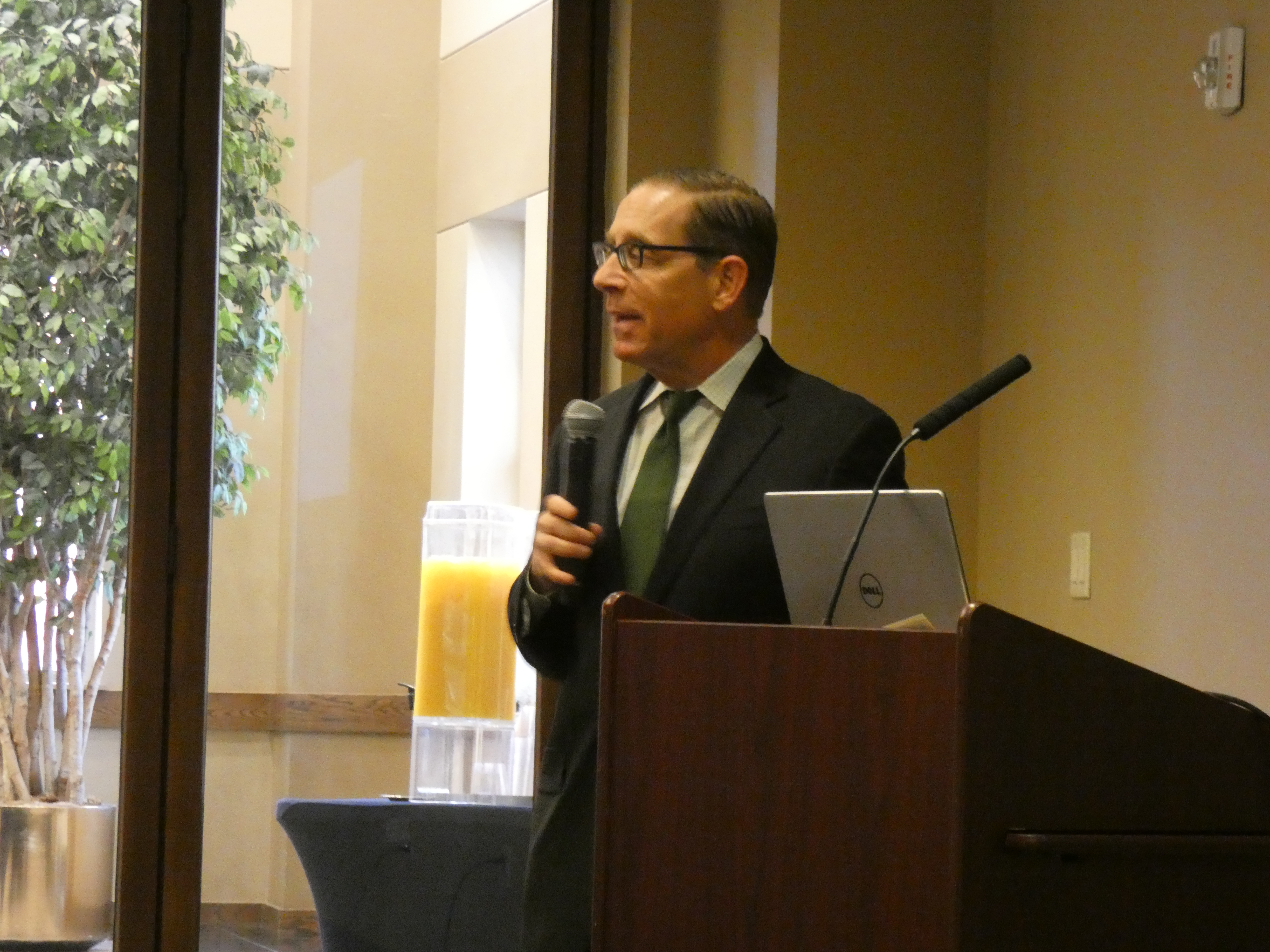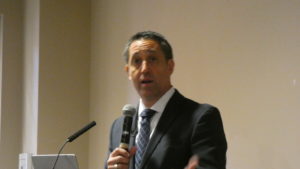
On April 7 the Brownwood Area Chamber of Commerce hosted their biennial Economic Summit on the campus of Howard Payne University. The first featured speaker was Evan Smith (pictured above), President of the Texas Tribune news organization. He spoke mostly about demographic trends in Texas, which he said is growing, urbanizing, and diversifying. Some of the highlights:
*** The Texas population, per the 2020 Census, is now 29.5 million persons. This is an increase of almost twice the state population in 1990 (16 million). Additionally, the state population is projected to nearly double again by the year 2050.
*** The population growth is concentrated in urban areas. Today Texas has five of the biggest twelve cities in the country: #4 Houston, #7 San Antonio, #9 Dallas, #11 Austin, and #12 Ft. Worth. Also, El Paso is the 22nd largest city in the country.
*** Racial diversity in Texas is increasing. In the 2020 Census the white population in Texas dropped below 40% for the first time. Hispanics are now the largest ethnic group in the state, but still less than a majority. By the 2030 Census the Hispanic population is Texas is expected to be about 55%.
Rural Texas now contains three million persons, but Smith showed several charts and maps that showed that rural Texas has more political power than their 10% of the state population would suggest. Three million is greater than the total population of 18 states, and he pointed out that the agriculture and oil production in rural Texas are still very large components of the Texas economy.
The next featured speaker was Glenn Hegar, Texas State Comptroller. The Comptroller is both the treasurer for the state, and the tax collector. Hegar said the state budget is now $126 billion. About 1/3 of that comes from the Federal government, with the remaining 2/3 raised within the state. Of that amount, about 2/3 is sales taxes. Business has been good in Texas and is providing lots of dollars to Austin, but there are Constitutional and legal limits on how much money can be spent, and where.
The Legislature in 2021 passed a law mandating high-speed broadband internet service throughout the entire state, and the Comptroller’s office is in charge of implementing the service. This will be a huge assist to commerce, education, and health care, especially in rural areas.
Marshall McIntosh and Ray Tipton from the City of Brownwood provided some local economic statistics:
*** Total sales tax collections in 2021 (for City Hall and the Municipal Development District) were $8.7 million, up from $7.7 million in 2020.
*** Hotel Occupancy Tax collections in 2021 were $418,900, up from $310,740 in pre-pandemic 2019.
*** Annual Building Valuation (a total of all construction within the city) was $19.3 million, compared to $11.8 million in both 2019 and 2020.
McIntosh and Tipton also mentioned several of the current ongoing construction and new business projects: the City’s Multi-Purpose Event Center, Common Grounds, Smile Doctors in Commerce Square, new Accel Health building, remodeling in Citizens National Bank, Fuzzy’s Tacos, Shaw’s Backyard, new Food Plaza at Austin and Coggin, a new plasma center near the Traffic-T, new Home 2 Suites hotel, and the Newbury Welcome Center at Howard Payne University.